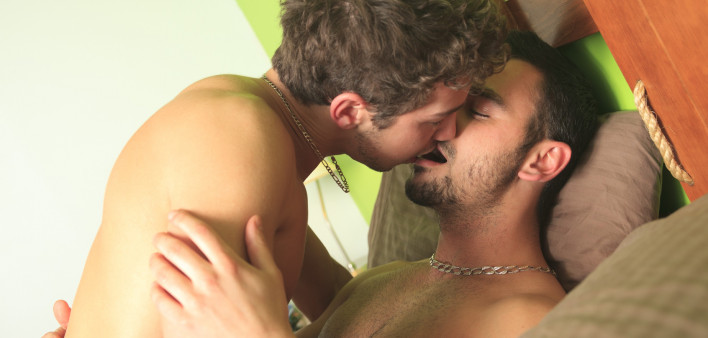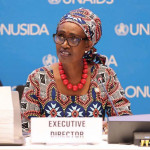I never thought I’d be writing this. Just two weeks ago I was writing that we need to give guys hooking up during COVID-19 some slack. During these difficult times, I said, we need harm reduction rather than calls for abstinence. But the ground has shifted under us.
We are virtually under a state of siege. “The pandemic requires an exceptional response to an equally exceptional situation,” said Canadian prime minister Justin Trudeau this week. He is not alone in that sentiment. Appeals to solidarity and community spirit are everywhere. We need to think and act responsibly in order to protect ourselves and, just as important, all those we interact with, we are told.
What Daniel said ????
— Terrence Higgins Trust (@THTorguk) April 2, 2020
Here’s why not hooking up for sex is so important on this #FappingThursday: https://t.co/meGjAZR2q7 #NoHookUps https://t.co/tDSyp90mPZ pic.twitter.com/KyzsDMAlqH
Early responses that addressed gay men now seem dated. The New York City Health Department issued recommendations that said to “consider taking a break from in-person dates.” That now seems lame. And then there was this advice: “If you do have sex with others, have as few partners as possible.” It’s classic harm reduction messaging, but in the midst of a health crisis of staggering proportions, it now seems old school and inappropriate.
Do gay men need to be told that sex with strangers or even group sex could be made less risky by washing your hands before and after? Some thought so then. I think we have passed that point. Instead, I think we just have to say, “No.” Or better yet, “Not right now.”
“Saying no to sex right now doesn’t make you the Nancy Reagan of the COVID-19 era. It means keeping everyone safe and healthy in the present, so that we can continue our future face-to-face fun,” wrote playwright Philip Dawkins in a New York Times opinion piece titled “Phone Sex Is Safe Sex.”
Dawkins continues: “Everyone needs to cooperate to halt the spread of a deadly virus. That is something that gay men should understand in our bones.” Yep, we’ve been there, done that. True, folks like AIDS activist Larry Kramer were attacked for not being sex-positive. “If my speech tonight doesn’t scare the shit out of you, we’re in real trouble,” he said way back then, to some backlash. I suspect he’d say something similar today. But as Slate’s sex-advice columnists recently put it: ”This is not about sex negativity. It’s life or death for many people. It’s about every individual’s responsibility to help contain this virus.”
Yep, it sounds a little preachy. We tended in the past to talk about giving guys choices but the only rational healthy choice now is staying at home and having sex there— however that might look as long as it doesn’t involve inviting others over. Extraordinary times call for extraordinary measures.

Dr. Michael Brady in the Terrence Higgins Trust campaignCourtesy of tht.org.uk
It’s a reality shift. I don’t typically like prescriptive slogans, so I gasped but then liked the Terrence Higgins Trust messaging themed around “No Hook-Ups.” The United-Kingdom-based THT are leaders in sexual health. They were on to messaging about Undetectble Equals Untransmittable even before there was a U=U campaign. So their article “Don’t hook up during the COVID-19 lockdown” from U=U hero Dr. Michael Brady made me sit up. “I never thought I’d say this, but the reality is that, for the time being, you are your safest sexual partner,” Brady said. ”It’s time to stay at home, stop close contact with people outside our household and to be creative about how we manage our sex lives.”
Bruce Richman agrees with Brady. Richman’s an uber-smart man who heads the Prevention Access Campaign and who launched the U=U campaign that has taken off across the globe. He endorsed Brady’s message on Facebook. “I know this is hard (pun intended) but, really, don’t hook up,” wrote Richman. “I’m adding that this seems counter to THT’s extremely sex-positive philosophy and track record. It’s not. It’s not about sex. It’s about sharing info about the best way to avoid getting sick and/or becoming a carrier and getting other people sick. We’re asking people to consider being safe during this time to protect all of us.”
He’s right. The good news is that as we’ve monitored hook-up sites, we’ve already seen that guys are changing their behaviours radically. We have also observed less talk of harm reduction in the context of hook-ups. Frankly I’m glad. Harm reduction is, after all, largely about reducing risk to oneself. In the context of where we are now amid the new coronavirus pandemic, it seems positively quaint to recommend ways to reduce the risk of, say, group sex, when it’s the general public, not the guy having sex, that becomes the one most impacted. To be blunt, to put the public at risk because you want to get off with a stranger isn’t rational. Let’s not open that door by providing tips for safer group sex. Not right now.
There will be room for harm reduction another day. Today is not that day.
So there I stand. Does it feel odd that my support for a harm-reduction approach to hooking up has evaporated in just two weeks? Of course, but we are in a rapidly shifting landscape. Two weeks ago, there weren’t stay-at-home orders everywhere. Two weeks ago there weren’t over a million cases of COVID-19 worldwide. Two weeks ago we hadn’t seen over 1,000 deaths in New York City alone.
This reminds me of a proverb: “A wise man changes his mind, a fool never will.” I’m not a wise man, but I am a realist. I do see a major threat to our health—yours and mine—that all of us need to engage in. Not just some of us. Hooking up right now isn’t engaging in that fight. Folks need to look elsewhere for alternatives to hooking up. You know what they are.
We want our #covid19 health advice to be accessible. Here it is en español ????????
— Terrence Higgins Trust (@THTorguk) April 1, 2020
No tengas sexo casual durante la cuarentena de COVID-19
El @drmbrady explica por qué encontrar placer de diferentes maneras es clave para combatir la propagación del coronavirus.#NoHookUps
It worries me that in my home country of Canada there still seems debate among those engaged in sexual health work. Some seem reluctant to see harm-reduction principles abandoned. It’s in our nature to go with the tried and true, to be sex-positive, to support people in their decisions, to recognize the marginalized are sometimes pushed into unhealthy decisions. Now, though, is the time for braver messaging, to go places we have never been before. Telling guys to just stay home is one of them.
But that’s not the end of it. We all are a bit fragile right now, the marginalized likely even more so. Some of us are scared, particularly people living with HIV. Supporting each other is increasingly vital to our well-being. It may seem like a distraction to spend time discussing whether to hook up. In fact, that conversation is a part of what matters most—keeping all of us healthy and keeping all of us alive.








2 Comments
2 Comments